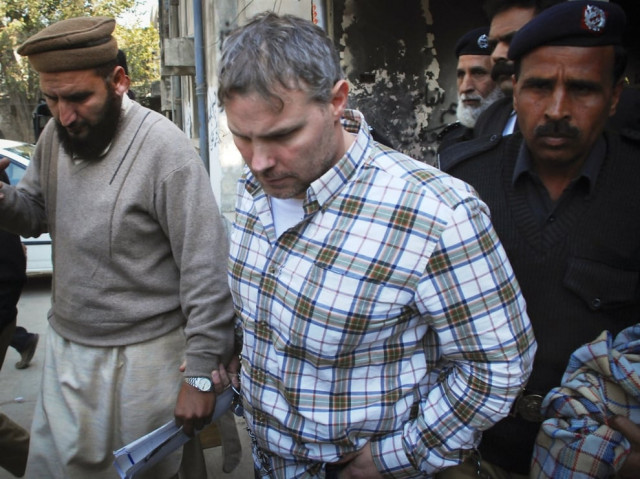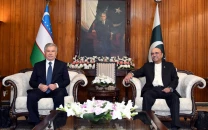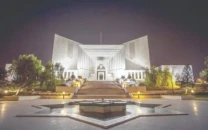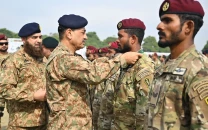Raymond Davis: The plot thickens
There are larger in the Davis case; issues relating to the structure under which states permit operatives on its soil.

This revelation is strengthened by the admission appearing in the hitherto self-gagged American press that he was a CIA ‘contractor’ working ‘under cover’. The complication introduced into the Raymond Davis affair is that high functionaries in Punjab are now suggesting that he be tried in a military court. This will strike people as America in cahoots with the Taliban and al Qaeda against the state of Pakistan targeting, as one official opined, Pakistan’s nuclear installations.
The American side is referring Davis’s presence in Pakistan under a “secret agreement” between Pakistan and the US which allowed “clandestine CIA operations” in Pakistan. This agreement was entered into by General Musharraf and his military hierarchy, including the ISI, “to make the Americans believe that Islamabad was not secretly helping the Taliban insurgents”. The military establishment also allowed the CIA “to acquire the services of private security firms, including Blackwater and DynCorp, to conduct surveillance on the Taliban and al Qaeda.”
The American press, while disclosing these facts, however, is hinting at Pakistani acquiescence in the activities of agents like Raymond Davis. It is quite obvious that the two sides are putting a different gloss on what Raymond Davis was doing in Pakistan. The American side thinks he was trailing terrorists likely to strike at the US, which included maintaining contacts with them. The Pakistani side thinks he was actually in collusion with the terrorists and could be planning terrorist attacks against innocent Pakistani citizens. In Pakistan, this difference of interpretation is bound to introduce complications into the legal case being heard by a Lahore court. The American establishment is desperately trying to prevent Davis’s case from taking a new anti-American direction.
The question to ask is that if the two sides were under indeed a ‘secret agreement’, what has happened now to change this anti-terrorism relationship? Having said that, it is worth repeating that countries often deploy their intelligence personnel overseas and usually the host nation is kept fully informed of such deployment — this applies to Pakistan as well, which may have such operatives in foreign posts, quite like Mr Davis, though their tasks may be widely divergent. The point is that the host nation is usually aware of the presence of operatives who often work under diplomatic cover, something that Washington is claiming for Davis.
Recent reports have made it clear that relations between the ISI and CIA were at their lowest ebb. Some observers in Pakistan had speculated that the drone attacks stopped after the arrest of Davis because of disruption of relations between the two intelligence agencies, though the Americans have said that this is due to bad weather. At the political level, too, there was a cooling off after the Pakistan Army resolutely opposed the American advice that it attack North Waziristan. Is the current crisis, as symbolised by the Davis case, an offshoot of this quarrel?
If it is, it should be resolved at the levels where the two countries engage in consultations. After that, the case in Lahore should be looked at objectively. Because of the public passion and the way the indictment of Raymond Davis has been put together by the police, no one outside Pakistan will consider it a fair trial. Of course, there are larger issues beyond Raymond Davis — and these relate to the whole structure or edifice, so to speak, under which states permits intelligence operatives of other countries on their soil. This, rather than the question of immunity, is something that critics of the government’s handling of the Raymond Davis case need to look into.
Published in The Express Tribune, February 23rd, 2011.



















COMMENTS
Comments are moderated and generally will be posted if they are on-topic and not abusive.
For more information, please see our Comments FAQ